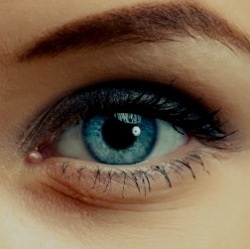
Two trials of gene therapy on an inherited form of blindness in children have shown some patients’ eyesight can be improved, but only temporarily. Gene therapy injections increased the retina’s light sensitivity, showing potential for the treatment. Children with Leber’s congenital amaurosis (LCA) lack night vision and lose daylight vision.
Scientists from the UK and the US published their study results in the New England Journal of Medicine. Leber’s congenital amaurosis affects the functioning of the retina, the light-sensitive tissue at the back of the eye. About 10% of people with LCA carry a mutated form of the gene RPE65 which is normally essential for vision.
But in people with LCA, the light-detecting cells eventually die and disrupt communication between the retina and the brain, leading to loss of vision. Researchers at University College London’s Institute of Ophthalmology and Moorfields Eye Hospital studied the effects of injecting healthy genes into the retinas of 12 young patients over six years.
They found that although half of patients experienced some improvements in their night vision, this peaked at six to 12 months after the treatment. Also, their daytime vision did not appear to improve.
